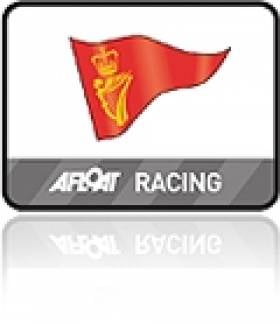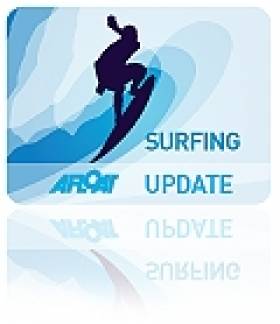Displaying items by tag: screening
RCYC Hosts 'Moby Dick' Screening
#ROYAL CORK - It was "uncharted waters" for the Royal Cork Yacht Club in Crosshaven last night as it hosted its first ever film screening, a showing of the John Huston classic Moby Dick.
The epic adventure, starring Gregory Peck, was shot on location in nearby Youghal, and tells the story of the obsessed Captain Ahab's pursuit of the titular whale.
Joleen Cronin of the Crosshaven Film Club told the Irish Examiner: "There are lots of people throughout Cork who were involved in the making of the film and it’s a real celebration of movie making and special effects for its time."
The screening is hoped to be the first of many special events at the world's oldest yacht club, which will be hosting the biennial Cork Week regatta from 7-13 July.
Surfing's World Body to Roll Out Drug Screening
#SURFING - The world governing body for surfing is set to roll out drug screening for competitors and officials at its sanctioned events this year.
As The Guardian reports, the move by the Association of Surfing Professionals (ASP) comes after the drug-related death of top surfer Andy Irons in November 2010.
The former three time world champion was found to have died from a hart attack combined with "acute mixed drug ingestion".
Irish surfer Gerry Fitzgerald told the paper that drug-taking is "not sustainable" for top-level surfers on the circuit. "Athletes are training hard, the way the contests are now, it will catch up with you," he said.
Testing for performance-enhancing and recreational drugs is already carried out at a number of professional events in the UK and Ireland, according to This Is Cornwall.
Matthew Knight of the steering committee for the British Surf Championships welcomed the change, admitting that surfing had been a "dinosaur" in its approach to drug testing and needed to catch up with other sports.
However some concerns have been raised that the move could damage surfing's credibility as an 'underground' phenomenon.
"Part of its appeal is that it is counter-cultural, marginal and in some way subversive and that's where the association with drugs comes in, whether real or mythic," surfer and author Andy Martin told The Guardian. "How mainstream can surfing be before losing its soul?"






























































